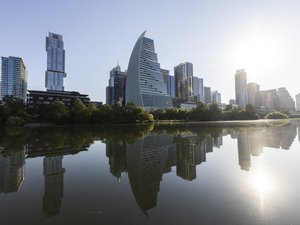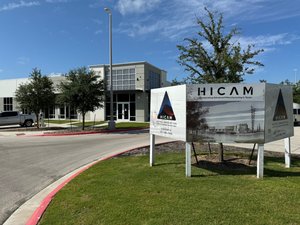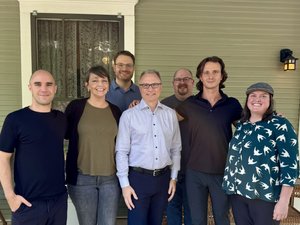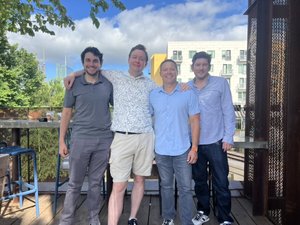The number of new tech companies in Austin has been growing for more than a decade, according to the Austin Chamber of Commerce. So, Austinites know a thing or two about how an influx of high-paying tech jobs at Apple, Facebook and Amazon has fueled an increase in the city's housing prices and rental rates.
But there's really no precedent for how landing Amazon's second North American headquarters -- and the $5 billion in investment and 50,000-plus high-paying jobs -- would affect life in the 512.
Average rent for an apartment in Austin is currently at $1,232. That's just one percent higher than last year's $1,224, thanks to a apartment building boom that's helping satisfy demand. But in years prior, Austin rental rates grew by 2.8 percent (2015) and 7.5 percent (2014), according to Capitol Market Research and RentCafe.
So, what would Amazon's HQ2 do to rental rates?
In Austin, it would push the city's average rent up by about 1 percent, according to ApartmentList.com, which projected rent increases across 15 cities considered top contenders for Amazon's new HQ. Austin rent prices have risen 4.7 percent per year, on average, between 2005 and 2015, the report shows.

"With relatively low median wages, some of the rent growth in Austin is expected from an increase in high-paid workers who will rent more expensive apartments, pulling the median rent up," the analysis said.
The projected one percent increase may sound negligible, even when placed on top of the city's existing rental price growth. And it may also seem like a small sacrifice in exchange for a big influx of high-paying jobs and a boom for thousands of other businesses that would benefit from more people with more disposable income.
But Austin has been struggling to provide enough affordable housing for low- and mid-income families for years. That has had consequences. Austin's black population, for example, has fallen from about 15 percent to about 7 percent. And many of Austin's longtime artists and musicians have also felt pushed out by ever-increasing housing costs and non-stop development, particularly in East Austin.
Amazon HQ2, where workers would have an average salary of $100,000-plus, doesn't seem likely to provide a meaningful change in the city's racial demographics on its own.
Of Amazon’s 105 executives in 2016, only one was Latino and none were black, Recode reported. The company's 2015 diversity report showed African-American employees increased from 15 percent of the company to 21 percent. But the increase was largely in lower-paying warehouse roles. In higher-level roles, the African-American employees increased from 4.5 percent to 5.1 percent.

Oddly enough, low housing and rent prices are part of the reason why Austin remains so attractive to big tech companies. For example, Austin was the 19th most expensive market for 1-bedroom apartments in October this year, according to ApartmentList's rankings.
For Austin and the other cities vying for Amazon's HQ2, the impact on rental prices largely boils down to how quickly a city can add new housing -- both for new high-wage workers and for lower-income workers -- and how much space it has to grow while adding new utilities and public transit along with it.
"Based on current job growth rates plus the additional 50,000 Amazon workers and 66,250 supplementary workers to be added over the next ten years, we project that many metros will add more jobs than new housing," the ApartmentList analysis says. "Metros, such as San Jose, where it’s difficult to build, will see rents skyrocket with the new housing demand from an Amazon headquarters. Metros, such as Dallas, that have kept up with existing housing demand and have laxer building regulations, will see lower rent increases."








